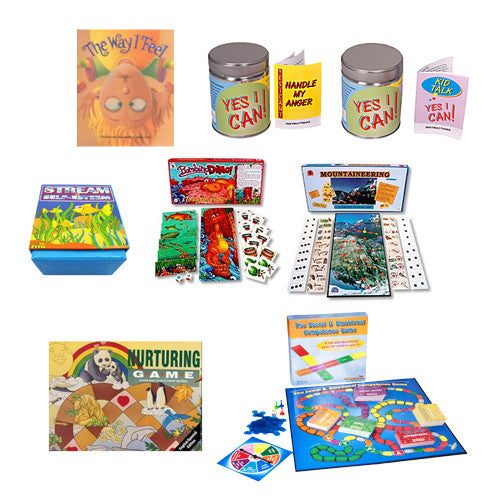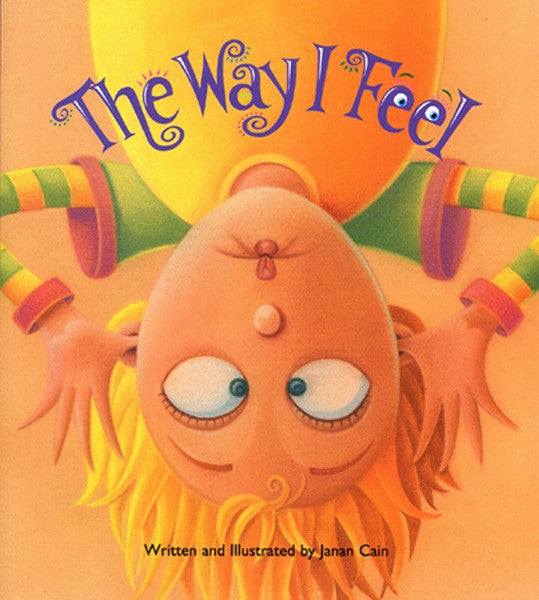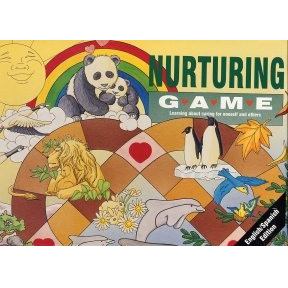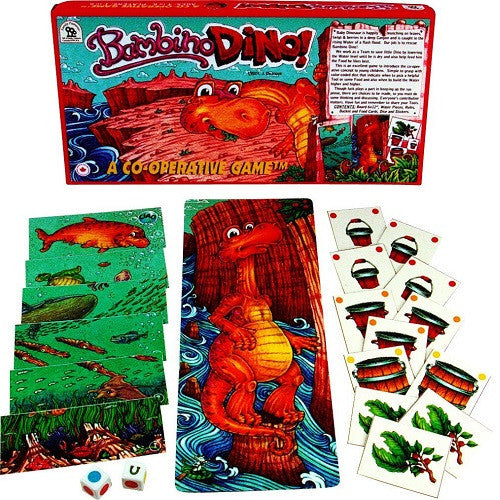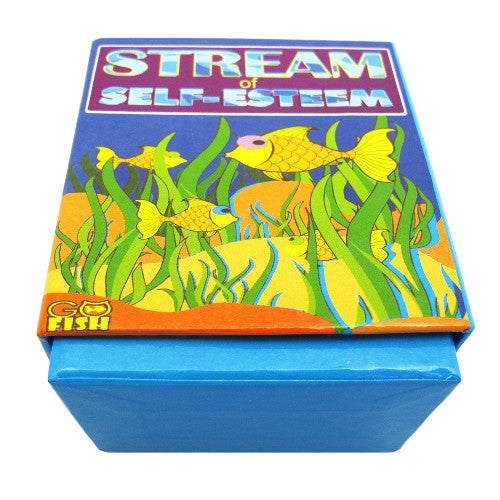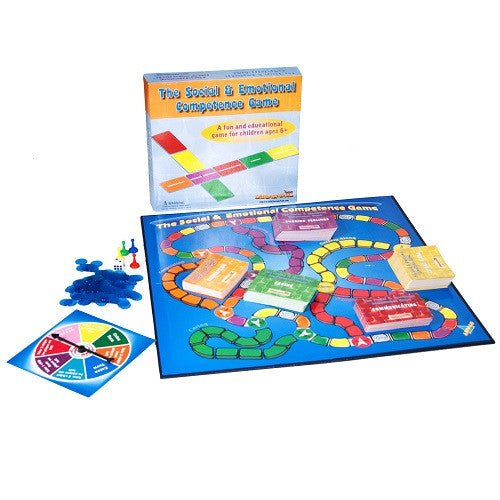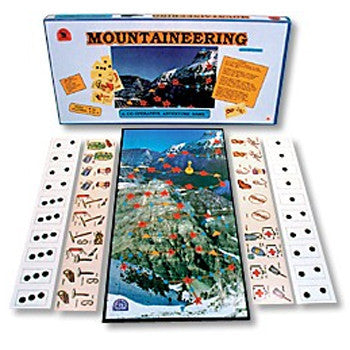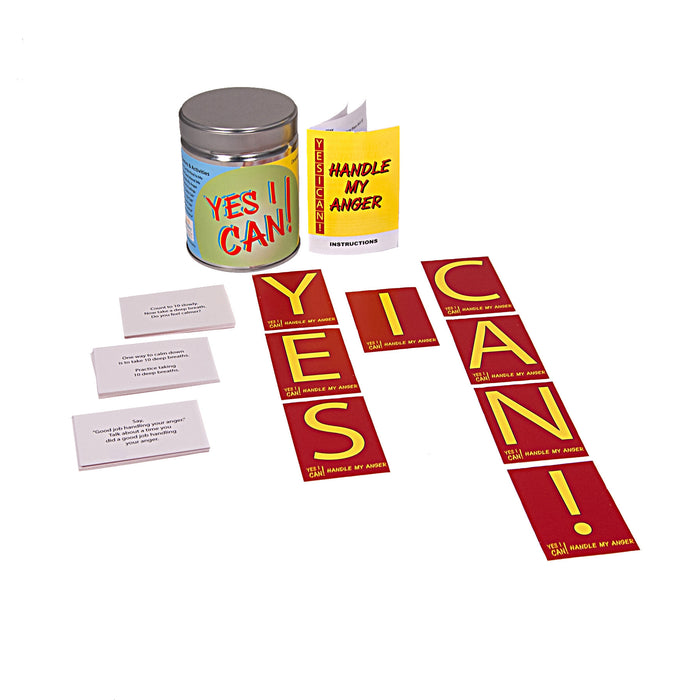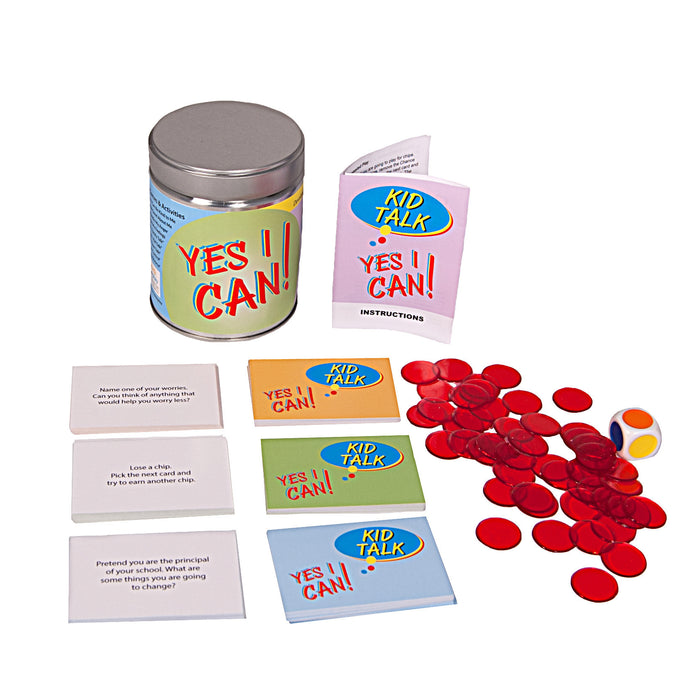Tired of Playing the Same Old Games? (Dr. Gary's picks)
- Several of Dr. Gary's favorite therapeutic activities in a discounted package
- Seven different play therapy games for a range of ages
- Includes the best selling book The Way I Feel
- This package is a great starter set or an excellent supplement to an existing collection
I use a lot of games and decided to include some of my favorites in a single, discounted package. This package contains seven games and a children's book about feelings:
The Social and Emotional Competence Game was developed to help children identify important child therapy topics and issues, and can be used throughout the course of therapy.
The Nurturing Game helps children talk about being loving and kind.
Both Bambino Dino and Mountaineering are cooperative games.
Go Fish: Stream of Self-Esteem is based on the popular card game, Go Fish. This game helps players build their self-esteem by sharing their own efforts, accomplishments, and persistence.
Yes I Can! Kid Talk is a fun way to have a conversation and to get to know the other participants (developed by Dr. Gary).
Yes I Can! Handle My Anger is an activity designed to help participants understand and appreciate various aspects of being angry (developed by Dr. Gary).
The Way I Feel is one of the best books on the market for identifying and discussing feelings. Its bright pictures quickly capture a child's attention.
READ MORE
The Social and Emotional Competence Game:
Children who are able to initiate and maintain relationships, cooperate with others, empathize, and communicate effectively are often happy children and therefore caregivers instinctively focus on teaching social and emotional skills to them. In the past two decades there has been increased focus on directly teaching and reinforcing social and emotional competence. The Social and Emotional Competence Game was designed to give counselors and teachers another tool to teach social and emotional skills. Social and emotional competence refers to the capacity to recognize and manage emotions, solve problems effectively, and establish and maintain relationships with others. It is these skills that serve to protect our children from a host of difficulties including behavior problems, increased emotional distress, academic failure, delinquency, and substance abuse. The Social and Emotional Competence Game is a fun way to teach empathy, communication skills, self-awareness, social awareness, relationship skills, self-management, and responsible decision-making. The Social and Emotional Competence Game is easily integrated into existing programs. It can also be used in individual and small group therapy.
The Nurturing Game: A game for adults and children ages 3 and older to increase self-awareness, communication skills, and appropriate use of personal power. Participants respond to questions regarding awareness of self, feelings, giving and receiving praise, as well as practicing appropriate touch. Each Nurturing Game contains cards and directions that are published both in English and Spanish.
Bambino Dino: A great game for teaching cooperation and communication. Baby Dinosaur is happily munching on leaves, twigs and berries in a deep Canyon and is caught in the rising Water of a flash flood. Our job is to rescue Bambino Dino! You must work together as a team to save little Dino by lowering the Water level until he is dry and also help give him the Food he likes best. This is an excellent game to introduce the co-operative concept to young children. Simple to grasp, with color-coded dice that indicate when to pick a helpful Tool or some Food and also when to build the Water higher and higher. Though luck plays a part in keeping up the suspense, there are choices to be made, so you must do some thinking and discussing. Everyone's contribution matters. Have fun and remember to share your Tools. We need everyone's help. Includes: 6 x 12 board, water pieces, rules, bucket and food cards, dice, stickers. Suitable for children ages 4 to 6.
Go Fish: Stream of Self-Esteem: For children grades K-5. Based on the popular card game, Go Fish, this game helps players build their self-esteem by sharing their own efforts, accomplishments, and persistence. the interactive play further builds self-esteem by strengthening social and conversational skills. There are two decks of 50 cards; one for each grade level. the game differs from classic go fish in that the players must answer a question before they can accept a requested card. Instead of numbers on the cards, each one has a fun fish with a name and picture. Rules sheet and facilitator guidelines included.
Mountaineering: Children ages 7 to 14 love this game! Working together with other group members, or with the therapist, the team tries to reach the Summit. Together the team must overcome obstacles and maneuver their way up the mountain. Only by working together can the team be successful. A great way to learn and practice cooperation.
The Way I Feel: This book is suitable for ages 2-8. It teaches children to understand the concept of emotions and to be able to express their feelings in words. The illustrations are bright, colorful, and entertaining.
Yes I Can! Handle My Anger: The Yes I Can Handle My Anger game is an activity designed to help participants understand and appreciate various aspects of being angry. There are three types of cards designed to help participants identify triggers for anger, identify positive and negative behaviors associated with anger, and identify thoughts associated with anger. Developing anger management skills is aided by discussion and role playing during the game.
Yes I Can! Kid Talk: Everyone enjoys connecting with other people. However, many of us have difficulty initiating and sustaining conversations. Sometimes we don't know what to talk about, or aren't sure what to say about a topic were discussing. Yes I Can Kid Talk is a fun way to have a conversation and to get to know the other participants. It is suitable for families, classrooms, counselors, and therapists. The cards can be used as a competitive game where each player attempts to accumulate the most chips, or non competitively and participants respond to the cards without earning chips.

